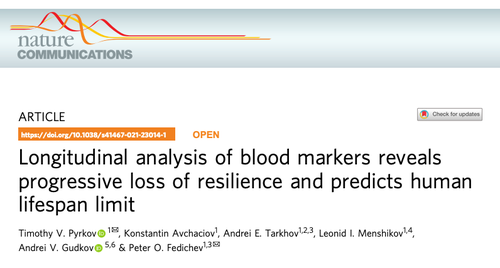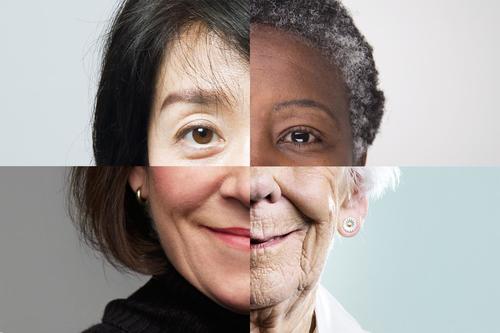( La limite possible de la durée de vie, 150 ans. Je rajoute, en bonne santé autrement cela ne sert à rien. note de rené)
Upper Limit Of Human Mortality Is 150 Years Old, Scientists Say
Silicon Valley elites are obsessed with immortality. They're pouring investments into biohacking technologies on their quest for living forever. We don't want to spoil their fun, but sometimes we have to, as a new study suggests the upper limit of human mortality is 150 years old.
Researchers of Gero, a Singapore-based biotech company in collaboration with Roswell Park Comprehensive Cancer Center in Buffalo, New York, published new research in the journal of Natureportfolio, showing results between aging and the loss of the ability to recover from stresses. They gathered iPhone and medical data from volunteers in the US and UK to calculate the maximum age of humans.
Using artificial intelligence, researchers analyzed the health data of the volunteers. The study found two crucial data points for human lifespan — biological age and resilience. The former is connected with stress, lifestyle, and chronic diseases and the latter are related to how fast a person reverts to normal conditions following stressor response.
Heather Whitson, director of the Duke University Center for the Study of Aging, who was not involved in the study, told Scientific American that the researchers "asked the question of 'What's the longest life that a human complex system could live if everything else went really well, and it's in a stress-free environment?'"
In doing so, the researchers were able to establish the "pace of aging," which found human bodies aren't immortal but have an "absolute limit" of 120 to 150 years old.
"Aging in humans exhibits universal features common to complex systems operating on the brink of disintegration. This work is a demonstration of how concepts borrowed from physical sciences can be used in biology to probe different aspects of senescence and frailty to produce strong interventions against aging," said Peter Fedichev, co-founder and CEO of Gero.
"This work, in my opinion, is a conceptual breakthrough because it determines and separates the roles of fundamental factors in human longevity - the aging, defined as progressive loss of resilience, and age-related diseases, as "executors of death" following the loss of resilience. It explains why even most effective prevention and treatment of age-related diseases could only improve the average but not the maximal lifespan unless true antiaging therapies have been developed," said prof. Andrei Gudkov, PhD, Sr. Vice President and Chair of Department of Cell Stress Biology at Roswell Park Comprehensive Cancer Center.
David Sinclair, Harvard Medical School professor of genetics, commented on the study by saying it "shows that recovery rate is an important signature of aging that can guide the development of drugs to slow the process and extend healthspan."
... and possibly the quest for immortality has been shattered by this new research as elites resort to biobacking in their quest to live forever.


Aucun commentaire:
Enregistrer un commentaire